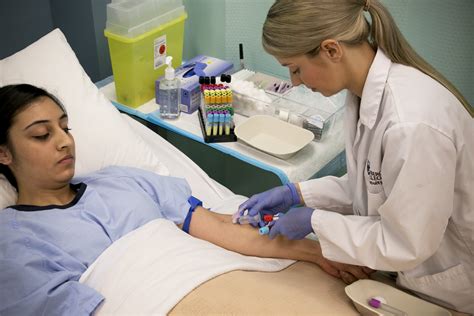Unlocking Your Career: A Comprehensive Guide to Launching a draw Blood Job
Are you considering a career in phlebotomy or looking to become a professional who draws blood? This comprehensive guide will walk you through everything you need to know about launching a accomplished blood draw job. From educational requirements and certification to practical tips and potential career benefits, we’ve got you covered.
What is a Blood Draw Job?
A blood draw job involves the collection of blood samples for testing, transfusion, or donation purposes. Professionals in this field are known as phlebotomists, and they play a vital role in the healthcare system by ensuring that patients receive accurate diagnostics and treatments.
Educational Requirements for Becoming a Phlebotomist
If you’re interested in pursuing a career in drawing blood, here are the typical necessities:
- high School Diploma/GED: Most phlebotomy programs require a high school diploma or equivalent.
- Phlebotomy Training Program: Completing a formal training program, typically lasting from a few weeks to several months, is essential.
- Certification: While not universally required, certifications from recognized bodies such as the American Society for Clinical Pathology (ASCP) or National Phlebotomy Association (NPA) can enhance your job prospects.
Skills Required to Succeed in a Blood Draw Job
Aside from formal education, several key skills can definitely help you excel in a draw blood job:
- Attention to Detail: Accurate specimen collection is crucial for reliable test results.
- Communication Skills: You’ll need to explain procedures to patients calmly and professionally.
- Manual Dexterity: Skillful handling of needles and sharp instruments is essential.
- Empathy and Patience: Understanding that patients may be anxious about blood draws can help ease their fears.
Steps to Launch a Draw Blood Career
here’s a step-by-step guide to help you get started:
- Research Phlebotomy programs: Look for accredited programs in your area or online.
- Complete Your Training: Enroll in a program and complete the required coursework and clinical training.
- Gain Clinical Experiance: Many programs offer externships to help you gain real-world experience.
- Obtain Certification: Prepare for and pass the certification exam, if you choose to pursue certification.
- Apply for Jobs: Create a captivating resume and start applying for entry-level phlebotomy positions.
Benefits of a Career in Phlebotomy
A career in drawing blood can be rewarding in several ways:
- Job Stability: the demand for healthcare professionals, including phlebotomists, is expected to grow steadily.
- Flexibility: Phlebotomy jobs are available in various settings,from hospitals to private labs,allowing for flexible scheduling.
- Helping Others: You’ll make a difference in patients’ lives by aiding in their medical care.
- Career Advancement: With experience and additional training, you can move into higher-level roles within healthcare.
Case Studies: Real-Life Experiences
Learning from others’ experiences can provide valuable insights into what to expect in your phlebotomy career:
| Name | experience | Advice |
|---|---|---|
| Sarah L. | 6 years as a phlebotomist | “stay calm under pressure and always communicate with patients about what to expect.” |
| David M. | 3 years in a lab setting | “Don’t shy away from asking questions. Your team will be your best support.” |
| Jessica R. | 4 years, now a supervisor | “Continually pursue educational opportunities to advance your skills and career.” |
Practical Tips for Aspiring Phlebotomists
As you embark on your phlebotomy journey, consider these practical tips:
- Practice Makes Perfect: The more you practice blood draws, the more confident you will become. Look for opportunities to practice in training environments.
- Network: Attend phlebotomy conferences and workshops to connect with industry professionals.
- Stay Informed: Keep up with the latest techniques and advancements in the field by joining professional organizations.
- Build a Strong Resume: Highlight any specialized skills and training that set you apart from other candidates.
Conclusion
Launching a career in drawing blood is an attainable goal that can lead to a fulfilling and stable profession. With the right education, skills, and dedication, you can unlock many opportunities in healthcare. Remember to stay informed, practice diligently, and connect with fellow professionals as you embark on this rewarding journey.
By following this comprehensive guide, you’ll be well on your way to starting your draw blood job and helping others in their critical time of need.
